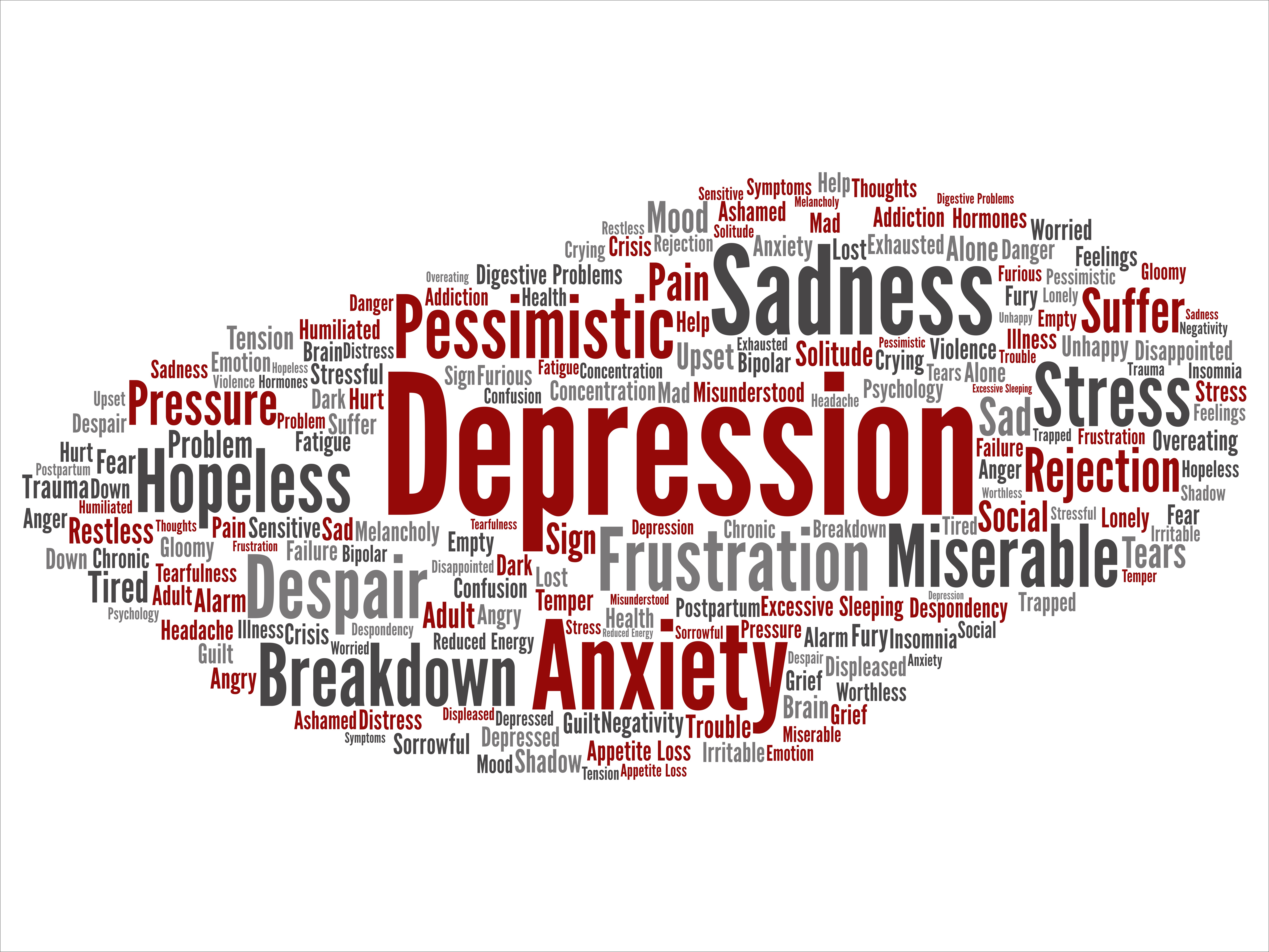America has a problem, an affliction that does not discriminate and leaves nearly 20 percent of young adults under its dark cloud.
Unlike a physical ailment with clear symptoms, major depression manifests uniquely in each person. Some may cry a lot, while others feel numb, making depression hard to recognize and empathize with. Yet one unified trait remains at its core: It simply feels bad.
A recent paper examined seven popular diagnostic questionnaires, identifying 52 different symptoms of depression. These run the gamut from “feeling sad” to “insomnia,” “lack of insight” to “leaden paralysis.” Analyzing open conversations about mental health can help bridge gaps in understanding and ensure those struggling feel heard, seen, and cared for appropriately.
Understanding Well-Being Through Words
The idea that language can shape people’s experience of the world was introduced in the mid-19th century by Edward Sapir and Benjamin Whorf through the theory of
linguistic relativity. Studying people’s language habits can provide insights into that experience.
Over the past several decades, advances in computer text analysis have enabled researchers to ascertain patterns in motivation, mood, and other psychological variables by categorizing and tallying the frequency of certain words. For instance, over a decade ago, psychologist James Pennebaker used computerized text analyses to look at the use of a narrow range of words, including pronouns and and prepositions in hundreds of thousands of books, blogs, tweets, texts, and more. He shared his process and insights into the mental states of people writing that material in “The Secret Life of Pronouns: What Our Words Say About Us.”
More recently, machine learning has allowed scientists to extract words, phrases, topics, and emojis that characterize well-being across diverse groups. This has led to a new understanding of the linguistic markers that reflect people’s happiness and life satisfaction.
We might expect that happy people tend to use upbeat words like “happy,” “joy,” or “excited” universally. However, words predicting well-being can differ across populations. For urban dwellers, satisfaction could manifest in words like “ideas,” “services,” or “entertainment.” Meanwhile, contented rural folk might reference “trip,” “camping,” or “mountains.”
Conversely, the unique worldviews of certain depressed groups may emerge through their language habits. Do they frequently discuss food, movies, sleep? Identifying signs of low quality of life through language can empower caregivers to provide support.
Inside the Online Worlds of Depression
A
recent study analyzed over 1.3 million posts across 43 subreddits to understand how different online communities discuss depression. Reddit is an anonymous online forum that lets users discuss and share posts around topics of interest, including seeking mental health support and connecting with others facing similar struggles.
Depression and Self-Perception
The researchers first examined how specific depressive symptoms correlated with linguistic patterns. The findings were telling.
Individuals expressing a lack of control over their lives were less likely to use first-person pronouns like “I” and “me.” They tended to discuss things detachedly using words like “it” or “they.” This group also shared less about emotions, especially negative ones, health, or personal problems. However, they often mentioned money and leisure pursuits potentially related to that loss of control.
In contrast, people voicing suicidal ideation referenced themselves and focused heavily on negative emotions. Family featured as another core topic for this demographic.
Those exhibiting anxiety similarly dwelled on negative feelings—specifically anxiety-related ones. Conversations also centered on physical health manifestations of stress, including digestion, blood pressure, and headaches.
Specific Words Linked to Specific Symptoms
Looking closer at the vocabulary linked to each subset of depression, further nuances emerged.
The research team predicted what terms would be used most often in association with particular symptoms of depression.
Returning to the individuals who evinced loss of control, some of the most highly probable content revolved around games and play. Yet they seldom mentioned school, family, or loneliness. Conversely, the lonely group fixated the most on relationships.
Reddit users exhibiting suicidal thoughts frequently noted family discord, especially with mothers, alongside control issues and emotions like anger or worthlessness. Discussions of self-harm—including cutting, scars, etc.—were also more prevalent here than in other categories.
Moreover, anxious individuals were much more likely to discuss their medical diagnoses, as well as a range of somatic complaints and lack of sleep. They were more prone to share about life stressors like school, parents, and time pressures.
These trends were also replicated in a different sample of users from Twitter. The consistency of these linguistic trends underscores that clear patterns underpin how subgroups with depression communicate about their lives online.
Perspective on Coping
As the saying goes, “The devil is in the details.” It pays to notice the specific words people use to describe themselves and take stock of what that could mean. From a clinical psychology perspective, linguistic patterns offer meaningful clues into both the drivers of depression and potential avenues for support.
Those perceiving a lack of control often cope through gaming or activities that facilitate disengagement from social connections or emotions. For some, this could be adaptive coping. However, taken to extremes, this withdrawal could worsen outcomes and require adjusting course.
On the other hand, anxious individuals may benefit most from sharing feelings, provided it occurs in constructive communities rather than groups reinforcing negative mindsets.
Few things feel worse when you’re feeling low than when someone presumes to grasp your suffering but lacks proper understanding. Insights from linguistic text analysis may help to approach depression as the multifaceted phenomenon it is while tailoring care to what weighs most heavily on a person’s psyche.











